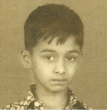If Kiran Bedi brought Vipasana to Tihar inmates, then the 3 R’s were brought by Ms. Ramena to Kerala prisons.
In a state with 100% literacy, Ramena assumed an overwhelming percentage of jail inmates who could write and read in Malayalam. As state prison’s DGP, she was keen to introducing a small measure of computer literacy to the inmates; a step in making them independent, post their release. Getting employment outside would be next to impossible for prisoners for a jail stigma is a strong impediment and deterrent.
So as DGP, she was keen on some kind of rehabilitation; a failure to re-join the mainstream would result in more crimes. Rehana just wanted to equip these people in computer skills that could come in handy for internet jobs.
This was the insight behind starting the computer drive in prisons in Kochi, Trivandrum, and Palghat.
Ramena first discovered that that over 80% of inmates were plain illiterates. This threw a spanner in the works and a greater challenge; first get them to have a working knowledge in the language and then progress them on to computer studies. This project was scoffed at initially, everyone called her “courageous”!!!
Slowly Ramena got primary school study material for the inmates. She sought local schools for support both by way of “teachers” and “study material”, which basically meant text books and notebooks. There was an intrinsic goodness about the project and principals did not discard her project straightway. These schools were in any way involved in sending their wards for social service to prisons on national days and on festivals like raksha bandan and holi. So, they did have inkling as to what to expect of prisons and prisoners.
Slowly assistance started to trickle in and prisoners needed to be goaded too for participation. The inmates come from an age group as varied from 20 to 60 and different in their attitude to studying. Ramena got a few classes started and paired a literate prisoner with an unlettered one in the cells.
That actually started the transformation; one can teach and another to learn and both found a great deal of satisfaction. Slowly, the literacy campaign gained momentum and the jail was abuzz with excitement of learning.
Soon, the illiterate inmates started to learn the alphabets, then words and soon enough progressed to sentence construction. Their joy knew no bounds when they started to write letters to their wives and children. A man over 70 remarked, “I have seen so many things in life and most of them sordid but never a committed soul like Ramena. She believed in us so much that we had no choice but to believe in ourselves”.
Saturday, May 9, 2009
Subscribe to:
Post Comments (Atom)



No comments:
Post a Comment